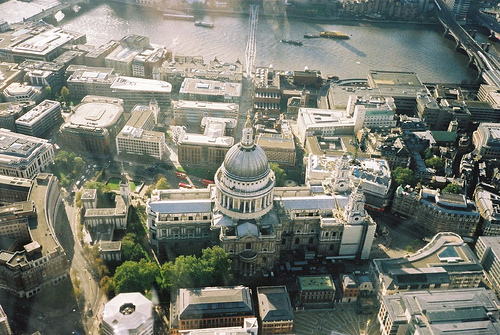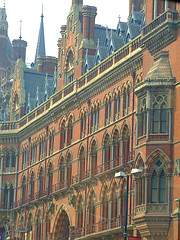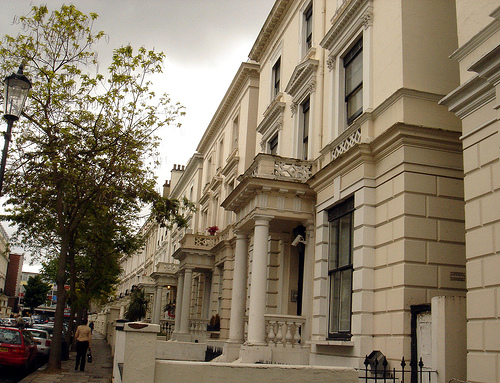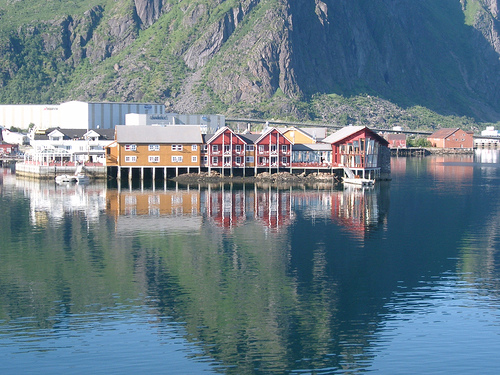182: UK House Price Crash – Yes or No?
01-27-2008
PropertyInvesting.net Team
Back to the old subject – will there be a house price crash or not? Our view is that there will not be a fully fledged crash without a  correction of some 5-10% is on the cards, possibly a little more over the next 2 years, but a fully fledge crash is difficult to envisage without many people loosing their jobs and distress in making payments on mortgages.
correction of some 5-10% is on the cards, possibly a little more over the next 2 years, but a fully fledge crash is difficult to envisage without many people loosing their jobs and distress in making payments on mortgages.
What particularly supports the
The likely effect will be a slowing down of the property market, less people moving, stagnation of property prices and first time buying continuing to be blocked out of the market – partly because of tightening of lending by the banks. Rental demand should increase. Buy-to-let investors will also slow their activity – but because of the supply-demand imbalance and rising employment – even despite the GDP slowdown from 2.8% to 1.8% - we envisage prices dropping by about 5% in 2008 overall in the
One of the problems will continue to be  prices have risen to dangerous levels and some eastern European immigrates may leave because of the declining pound, to work in mainland
prices have risen to dangerous levels and some eastern European immigrates may leave because of the declining pound, to work in mainland
Despite all the talk of en-debted
The other positive news is that the credit crunch in the
The other interesting thing to note is that the stock market crash of 15% from late 2007 to Monday 20th January at 11 am in the morning (remember, the FT dropped to 5350, far lower than ten years ago!) has again  spooked the average small investor. The severity of the correction – a drop of 6% in an hour – is further evidence that stocks are risky. We expect this wake-up call to again make wealthy people consider property as a safer investment than stocks. Many people may have cashed in their stocks to put into property – this happened in March 2000. Remember, if you had put your savings into the FT100 index in 1997, you would have not gained anything in asset price increases in ten years – the FT100 is the same today as it was when Tony Blair came to power. But property prices have more than doubled – they have tripled in
spooked the average small investor. The severity of the correction – a drop of 6% in an hour – is further evidence that stocks are risky. We expect this wake-up call to again make wealthy people consider property as a safer investment than stocks. Many people may have cashed in their stocks to put into property – this happened in March 2000. Remember, if you had put your savings into the FT100 index in 1997, you would have not gained anything in asset price increases in ten years – the FT100 is the same today as it was when Tony Blair came to power. But property prices have more than doubled – they have tripled in
So for all those investors with large property portfolio’s do not get too disheartened. There is no evidence the rental market is going pear shaped, no evidence so far of a crash, and 2008 will not be a good year – but it won’t be Armageddon either.

For the large investor, the best time to buy is as interest rates peak and the market goes cold or has dropped significantly. The interest rates have just peaked and the market has gone cold – we are not sure how much price would drop (if any). But you need to be very careful. Don’t over-extend yourself in risky times. We do not advise first time buyers to enter the market at this time, unless you have very good finances and can pick up a good bargain in a developing area (e.g, Hackney/Stratford East London, Ebbsfleet/Gravesend).
If you want to be more sure of house prices rising, read all our special reports on oil/gas prices and countries to invest in – the best countries we believe are Norway (all areas) and Canada (Fort McMurray, Edmonton, Calgary).
169: Oil supply crunch begins… protect yourself
168: Alarm bells ringing – oil price shock now on the horizon
163: Making Serious Money as asset prices plateau – resources and property
161: Resources winners and losers - ranked list for property investors
160: Find out the winners and losers in the biggest oil boom in history - about to happen...
159: Massive oil boom - the winners and losers - be prepared
158: Supply and demand scenarios - oil boom and the property investors insights
157: Impact of "Peak Oil" for Property Investment
151: Oil price $125 / bbl and rising…how to take advantage in property
150: Peak Oil shortly due to be reach – unique insights for a property investor
If you buy in the
The outlook is uncertain, but if interest rates drop to something like 4.5% - do not be surprised if property prices start going up again! No-one is predicting this, but every time the Bank of England has dropped rates in the last 15 years, property prices have start moving higher again – will this be the first time they don’t? We’ll have to wait and see.
But be conscious that if oil prices rise to $125/bbl by end 2008 as we predict, then inflation will rise to over 3% which will limit the interest rates dropping. This could then lead to a move severe and longer lasting house price downturn. So oil prices over $100/bbl spell trouble – unless you invest in oil towns –
If you have any comments on this special report, please contact us on enquiries@propertyinvesting.net.

